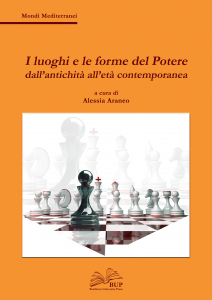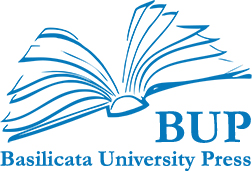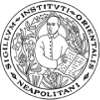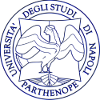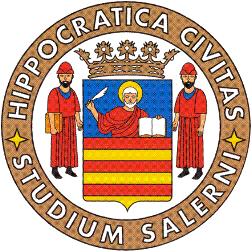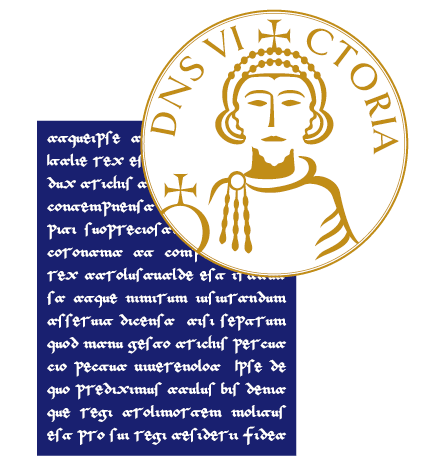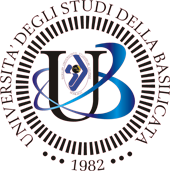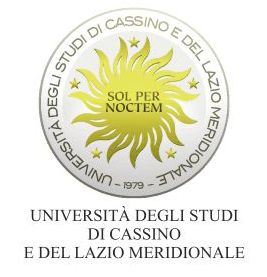I luoghi e le forme del Potere dall’antichità all’età contemporanea
Keywords:
Potere, Storia Medievale, Storia Moderna, Filosofia morale, Legittimazione del potere, Strategie del potere, Storia della letteratura, Storia dell'arte, Filologia, Potenza, ArcheologiaSinossi
Editore: BUP – Basilicata University Press
Collana: Mondi Mediterranei
Pagine: 440
Lingua: Italiano
NBN: http://nbn.depositolegale.it/urn:nbn:it:unina-25521
Abstract: Il termine potere, lungi dal possedere una designazione rigida, gode di svariate accezioni e di molteplici forme. Proprio in virtù della sua pervasività nonché della sua incoercibile multiformità, è possibile leggere la storia dell’uomo come una storia di potere o di poteri. Diverse sono le declinazioni del termine: da quella che permette di interpretarlo come possibilità di azione da parte di ciascun soggetto, a quella che lo intende quale monopolio della forza o ancora legittima forma di amministrazione politica. Tanto come sostantivo quanto come verbo, il potere racconta una storia necessaria: la storia di un consorzio umano che non può prescindere dal subire o dall’esercitare potere e di un uomo che per essere deve potere.
La necessità e la trasversalità della articolata tematica sono al centro di questo volume, che scaturisce da uno sforzo di riflessione nato nell’ambito del Dottorato di ricerca in “Storia, Culture e Saperi dell’Europa mediterranea dall’antichità all’età contemporanea” del Dipartimento di Scienze Umane dell’Università degli Studi della Basilicata. La formazione ampia ed eterogenea degli autori, spaziando dalla storia alla filosofia, dalla filologia alla letteratura, dalla storia della lingua alla storia dell’arte, ha consentito di affrontare l’argomento a partire da punti di vista e da discipline differenti, nel tentativo di mostrare e di problematizzare la sua complessità, i suoi molteplici e cangianti volti, i suoi luoghi e i suoi sviluppi.
Sommario:
Aldo Corcella - Aurelio Musi, Premessa
ETÀ ANTICA
Ariel Samuel Lewin, Opinioni d’intellettuali greci ed ebrei sul potere romano. I sec. a. C. - I sec. d. C.
Paolo Di Benedetto, Migrazione e potere: dinamiche etniche e legittimazione eolica del potere in Asia Minore
Marta Marucci, Motivi encomiastici nelle iscrizioni funebri per soldati nell’Egitto Tolemaico (III-I sec. a.C.)
Roberta Carlesimo, Il potere del miles e la debolezza dell’amator. Riflessioni intorno alla figura del miles amatorius nella Perikeiromene di Menandro
Rosa Mauro, Atreo in Seneca: il personaggio e il lessico
Marialucia Nolè, Invitus, necessarius, parcus: echi della patria potestas negli esercizi di scuola in Grecia e a Roma
Fabiana Micca, Riflessi di potere in una coppa di vino
Antonio Pecci, Il segno del potere di Roma sul territorio dell’antica Lucania: la Via Herculia
Maurizio Castoldi, Architettura e marmi nell’autorappresentazione del potere in età romana: il complesso forense di Grumentum
ETÀ MEDIEVALE
Fulvio Delle Donne, Forme esemplari di costruzione del potere legittimo: Alfonso il Magnanimo (1394-1458)
Angela Brescia, L’incoronazione nella rappresentazione letteraria di Pietro da Eboli. Legittimazione e delegittimazione del sovrano
Sara Crea, Il racconto del potere: la storia di Enrico VI nel Chronicon di Francesco Pipino
Lelio Camassa, Potere dei santi nel Decameron: nota sulla novella di san Giuliano (II 2)
Mariarosa Libonati, Il potere della storiografia nei Gestorum per Alfonsum libri quinque di Tommaso Chaula
Biagio Nuciforo, Bâtards e bâtardise nella Napoli aragonese: la «dignissima prole» di Ferrante I
ETÀ MODERNA E CONTEMPORANEA
Gianfranco Borrelli, Foucault, Marx e la “conversione alla rivoluzione”
Paolo Augusto Masullo, Da situato e tangibile ad a-topico e informe
Roberta Sassano, Dall’ancien régime all’età napoleonica in Capitanata: i luoghi e le forme d’esercizio del potere a Foggia e a Cerignola
Michele Fasanella, Patrioti “dimezzati” per e nell’Italia unita: il caso di Giacinto Albini
Clelia Tomasco, Il “quarto potere” nella stampa magistrale tra Otto e Novecento in Basilicata: alcuni casi di studio
Cristiana Di Bonito, La diafasia come strumento linguistico di esercizio di un “potere”: sondaggi sulla lingua di alcuni personaggi del Teatro di Salvatore Di Giacomo
Tiziana Trippetta, La committenza architettonica nella stagione del Liberty lucano: due casi melfitani
Concetta Vaglio, Hannah Arendt. Il Potere come azione
Rocco Riccio, L’impotenza cognitiva degli enunciati metafisici secondo Rudolf Carnap
Nicolò Lorenzetto, Il concetto di “nuovo Potere” nel pensiero pasoliniano. Riflessioni a partire da Scritti corsari
Carmen Caramuta, L’assoggettamento del vitale: processi, modelli e strategie del potere
Alessia Araneo, Una farmacologia positiva per una psiche proletarizzata
Downloads
